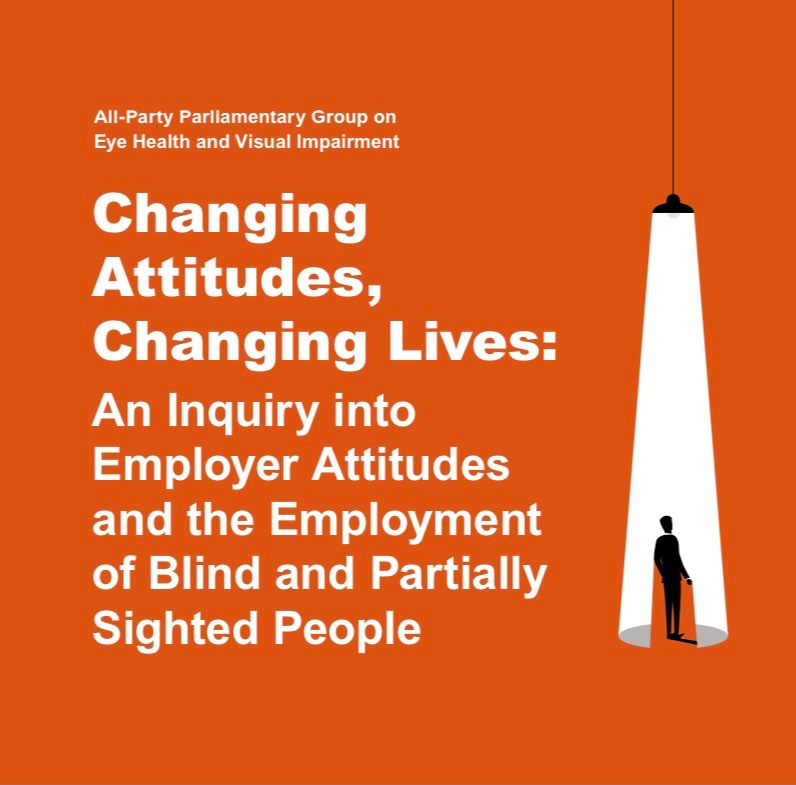
Parliamentary inquiry calls for a Disability Employment Strategy to improve employer attitudes and increase the number of blind and partially sighted people entering the labour market
An inquiry by the All-Party Parliamentary Group on Eye Health and Visual Impairment has highlighted the devastating impact negative employer attitudes are having on the levels of employment amongst blind and partially sighted people.
The inquiry findings reveal a pattern demonstrating many years of outdated views, misconceptions and even discrimination which has resulted in many blind and partially sighted people being consistently excluded from the labour market. For many this has had a profound impact on their lives.
The report highlights the practical barriers faced by blind and partially sighted people when looking for work and progressing in their careers. From inaccessible recruitment processes, including applications and interviews, not being able to access online platforms for training and development to not getting support for workplace adaptations and having reasonable adjustments put in place.
The inquiry also heard emotional accounts by people who have struggled to find work, some for many years. One person shared that “Job Centre staff said that there wouldn’t be many jobs they can do”, another felt their employer would often focus more on their perceived limitations rather than the skills and qualities they did have.
The ‘Changing Attitudes, Changing Lives’ report is calling on the UK Government to implement a Disability Employment Strategy, that will improve employer attitudes and increase the number of blind and partially sighted people in work.

Marsha de Cordova MP for Battersea and Chair of the All-Party Parliamentary Group on Eye Health and Visual Impairment commented:
“This report must be a watershed moment that leads to lasting change, breaking down barriers for blind and partially sighted people to obtain employment and changing employer attitudes.”
“With more than 800,000 vacancies in the UK, employers can no longer afford to overlook the potential of blind and partially sighted people.”
“We need serious commitment by the UK Government to reduce the disability employment gap, ensuring equality of opportunities, strengthening legislation, and most importantly enforcing it.”
The report has made 22 recommendations including:
- Reviewing the Equality Act (2010) to make sure it’s fit for purpose in the 21st century to support blind and partially sighted people to participate in the labour market
- Addressing the current failings in the government’s Access to Work (ATW) scheme, including tackling the current delays and backlog.
- Asking employers to take practical steps to ensure their workplaces are inclusive, such as producing information and documents in accessible formats and regularly testing their interface, for compatibility and accessibility.
Marsha de Cordova MP went on to say
“There is an obvious failure amongst some employers to comply with their legal obligations under the Equality Act 2010. For too long blind and partially sighted people have been held back by low levels of understanding among employers.”
“The UK government and employers must commit to changing attitudes and the lives of blind and partially sighted people across the UK.”
“As the Government starts to set out how it will support more people into work and publish its ‘Making Work Pay’ White Paper, now is the time to ensure that blind and partially sighted people of working age get the right support to reach their full potential.”
Download the report here
Large print (Word) Accessible pdf


